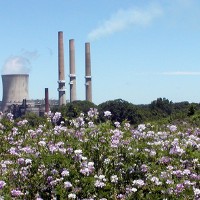Policy relevance in 2013
MAG has been coordinating the ‘European Consortium for Modelling of Air and Climate Strategies’ (EC4MACS) since 2006. This has 10 collaborating institutions, each a leader in the modeling of energy, transport, agriculture, atmospheric transport, ecosystems impacts, and economic feedbacks. The Consortium has established a common toolbox to explore the synergies and interactions between climate change, air quality and other policy objectives.
This GAINS/EC4MACS toolbox served as the analytical backbone for the development of the EU Clean Air Policy Package, which was adopted by the European Commission in December 2013. The proposed package is based on a series of 10 reports prepared by MAG, informing stakeholders on the likely future development of emissions, the scope for further reductions of emissions in the various economic sectors, and the benefits from such additional measures. It includes national emissions ceilings for 2030 for all member states for SO2, NOx, PM2.5, NH3, and VOC.
These ceilings were determined using IIASA’s GAINS model as the most cost-effective way forward for reducing health impacts from fine particulate matter by 50% compared to 2005.
On the basis of scientific evidence on the double role of methane as a climate gas and a precursor for ground-level ozone, the European Commission is also proposing national emission ceilings for CH4 for the first time in the world as a part of an air quality policy package.
In addition, GAINS calculations on non-CO2 greenhouse gases and air quality co-benefits were used by the European Commission for their 2014 Energy and Climate Package.
Through the work of MAG’s collaborators at Tsinghua University, experience obtained using the GAINS co-benefits systems approach informed deliberations and recent policy decisions on the action plan to reduce heavy air pollution in China. MAG representatives were invited to an expert meeting of the Beijing City Council, and participated in a policy study of the China Council on International Cooperation and Economic Development (CCICED).
GAINS analyses also supported the World Bank Report on "On Thin Ice: How Cutting Pollution Can Slow Warming and Save Lives," showing that by moving rapidly to reduce pollutants such as methane and black carbon, we could slow warming in critical snow and ice-covered regions while benefiting human welfare.
Furthermore, MAG contributed to the work of the Arctic Council on short-lived climate pollutants, and continues its affiliation with the Convention on Long-range Transboundary Air Pollution by hosting the "EMEP Centre for Integrated Assessment Modelling."
Collaborators
European Commission (EC);
Members of the EC4MACS Consortium;
Tsinghua University, China;
China Council on International Cooperation and Economic Development (CCICED);
Arctic Council, Norway.
Research program


